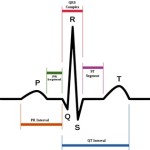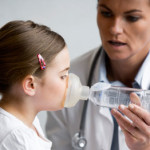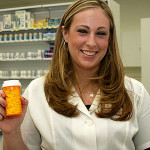Herpes is a virus that causes eruption of small blister like vesicles on the skin or mucous membranes, especially herpes simplex or herpes zoster. The group of viral diseases caused by the herpes viruses is affecting the skin or nervous system.
Herpes simplex viruses- more known as herpes, they are categorized in two types: herpes type 1 (HSV-1 or oral herpes) and herpes type 2 (HSV-2, or genital herpes). Herpes type 1 can cause sores around the mouth and lips. This sores around the mouth and lips are called fever blisters or cold sores. The oral herpes is the most common form of infection.
The second most common form of herpes is the genital herpes also known as “herpes”. Other disorders such as herpes whitlow, herpes gladiatorum, ocular herpes (keratitis), cerebral herpes infection encephalitis, Mollaret’s meningitis, neonatal herpes and possibly Bell’s palsy, they are all caused by the herpes simplex viruses.
The genital herpes is caused by HSV-1, but most of the genital herpes are caused by herpes type 2. The infected person with HSV-2 may have sores around the genitals or rectum, or HSV-2 can also occur in other locations such as below the waist. Herpes is a chronic condition.
Chronic means long-term in medicine. Many people never have symptoms even they are carrying the virus. Many people with HSV have recurring genital herpes. This person that is initially infected with requiring genital herpes, if the recurrences occur, they tend to happen more frequently. As the time passes the remission periods get longer and longer. These remissions are longer and each occurrence tends to become less severe with time.
What is genital Herpes?
Genital herpes is an infection that can be sexually transmitted. It is caused by HSV (herpes simplex virus). This type of virus can affect the genitals, the cervix, skin and the other parts of the body. The herpes simplex virus has two types: HSV-a, or herpes type 1, and HSV-2, or herpes type 2.
Herpes II is a sexually transmitted viral infection that can produce painful sores in the genital area. If the person is infected by a genital herpes, than this individual may carry the virus and be a subject to a recurrent bouts of infection.
In most cases people are often infected by HSV-2. This type of virus shows minimal signs or patients may have no signs or symptoms from the HSV-1 or HVS-2 infection at all. If there are any signs at all, than they can occur as one or more blisters on or around the genitals or rectum. After the blisters appear they can break, leaving tender ulcers (sores) that may take more than two weeks and something even four weeks to heal the first time they occur.
Prevention of herpes
First you have to know that your protection starts with wearing a condom. Abstaining from sex can be an option too. For those persons without genital herpes can consider about abstaining from sex as well as to be faithful. Use a condom and read more about birth control is the best option and protection you can get.
Herpes- how do I know that I even have it?
HSV infection causes several distinct disorders. Common infection of the skin or mucosa may affect the face and mouth (orofacial herpes); Genitalia (genital herpes); or, hands (herpetic whitlow). Eyes (herpes keratitis); central nervous system, damaging the brain (herpes encephalitis) persons with immature ineffective or suppressed immune systems are prone to severe complications from herpes.
The health care providers can easily diagnose genital herpes by visual inspection if the outbreak is typical. Your health care provider can take a sample from the sore(s) and test it. Sometimes the HSV infections can be diagnosed between the outbreaks with a simple blood test.
Treatment of Herpes
Antiviral medications can only prevent or shorten the outbreaks of the herpes, but only during the time when the person takes the medication. Daily suppressive therapy can reduce the likelihood of transmission to partners. Everything is a good, but not the best option for the treatment of herpes, but there is no treatment that can cure herpes. A proper education for genital herpes is always welcomed and not only for those patients that has genital herpes, but for all our patients as well.























